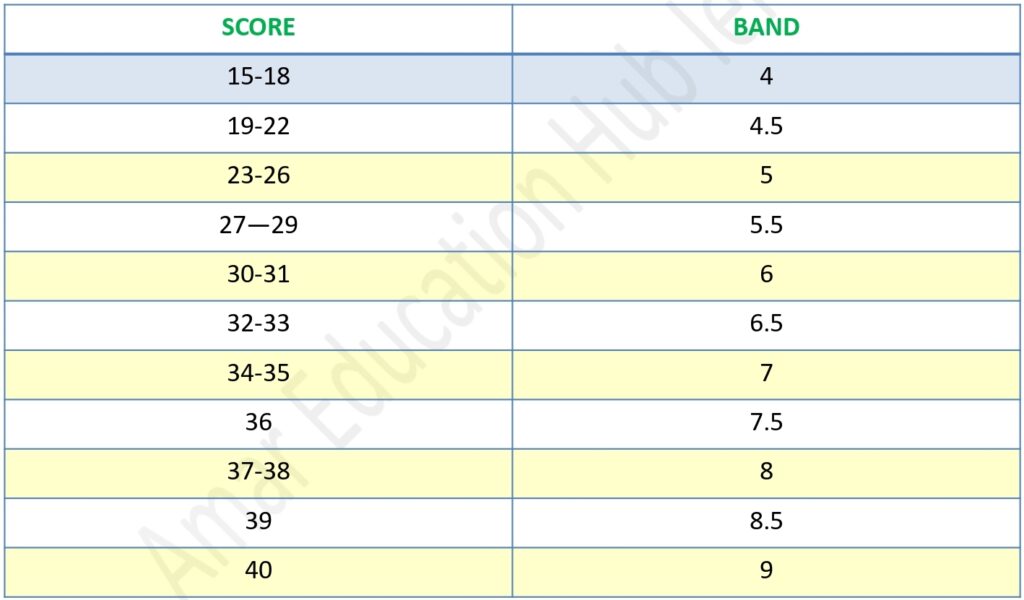What Does Reading Section Entail?
In Ielts Reading Exam has three passage and student have to complete 40 questions in 60 minutes. We are explaining how to prepare for the reading Ielts.
- Read the question instructions carefully what has asked in the question actually.
- Built reading speed – read as fast as you can
- Time management:- 90 Seconds for each Question.
- Don’t use dictionary while doing reading. You can guess the meaning of the word according to the sentence.
- After solving three passages, students should find the meaning of words, which did not understand in reading because every vocabulary is repeated in reading. So, you can increase vocabulary and enhance Reading Band Score.
- Always grab the knowledge, never do reading in hurry, do it will full concentration
- Student doing too much wrong answers. Students should try to figure out why they went wrong.
- Increase vocabulary day by day. You will be able to do better.
- Familiarizes yourself with the all types of questions
- Work on your weak points and make it your strong points.
- Practice More Practice Enhance Reading Band Score.
Watch Video To Learn More
IELTS Reading Module
IELTS Reading Information:-
IELTS Reading consists three passages and time duration is one hour to solve 40 questions. Ielts Reading has 13-14 different types of questions, which are taken from magazine, books and newspapers.
- Students will not be received any extra time to transfer their answers from question paper.
- Student should manage their time.
Watch Video To Learn More
Before continuing, have a look at this video.
Different Type Of Questions:-
- Matching paragraph Headings
In these types of questions a list of heading is given and studentshave to match it with the paragraph. Students understand theparagraph and choose the most suitable matching paragraph Headings. Not all paragraphs may be used.
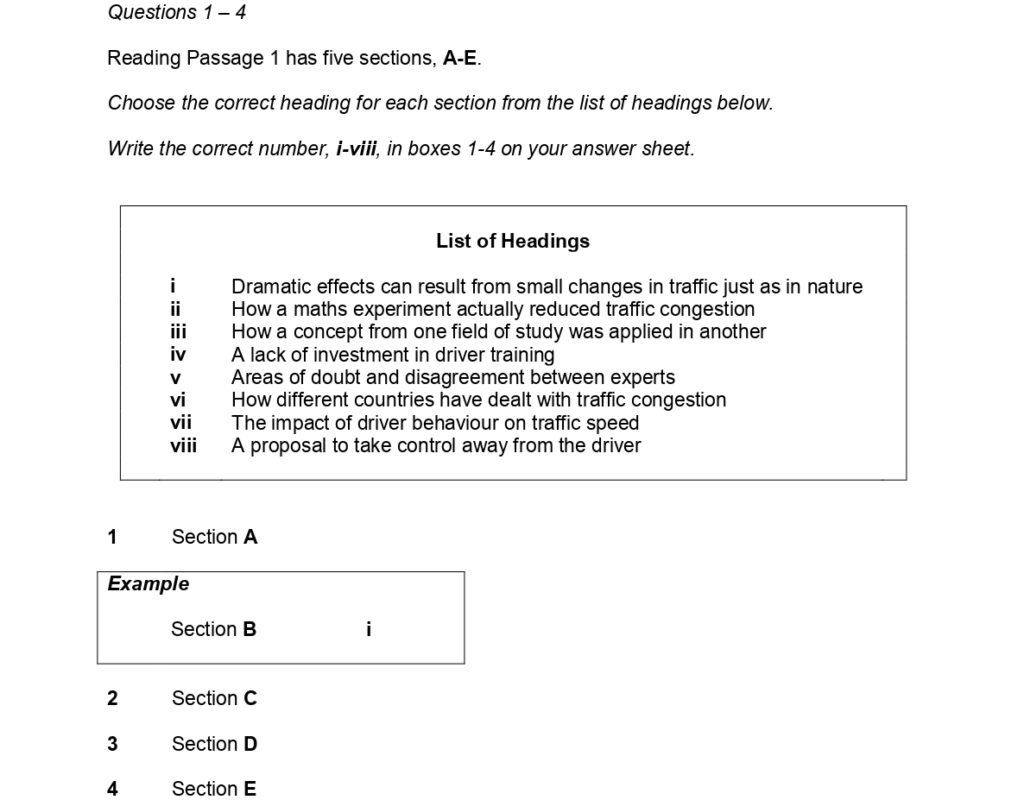
- Matching Paragraph Information
In these types of questions a list of questions is given and student have to find the paragraph for the specific information. Not all paragraphs may be used.
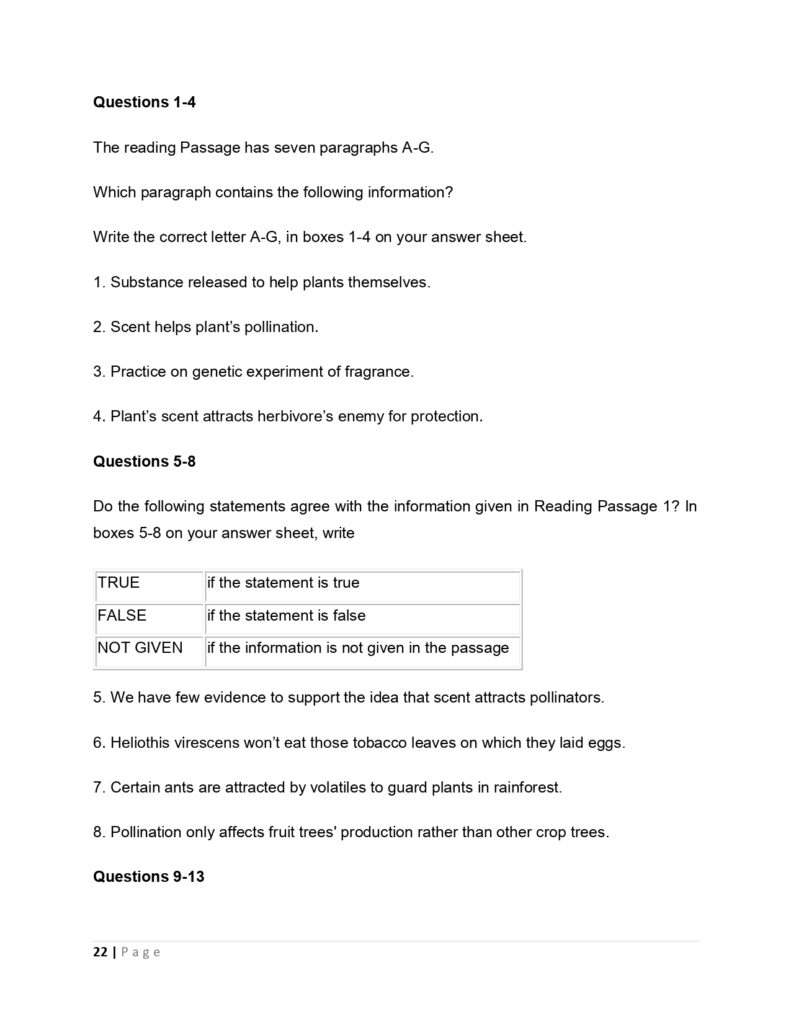
Different Type Of Questions:-
- True/False/Not Given/ Yes/No/Not Given
In these types of questions, Students have to answer if the information, facts or writer’s opinion in the question statements
can be found in the passage.
True/Yes – the same information is found in the passage.
False/No – the opposite information is found in the passage.
Not given – the information is not found in the passage.
Usually Answers in Order.
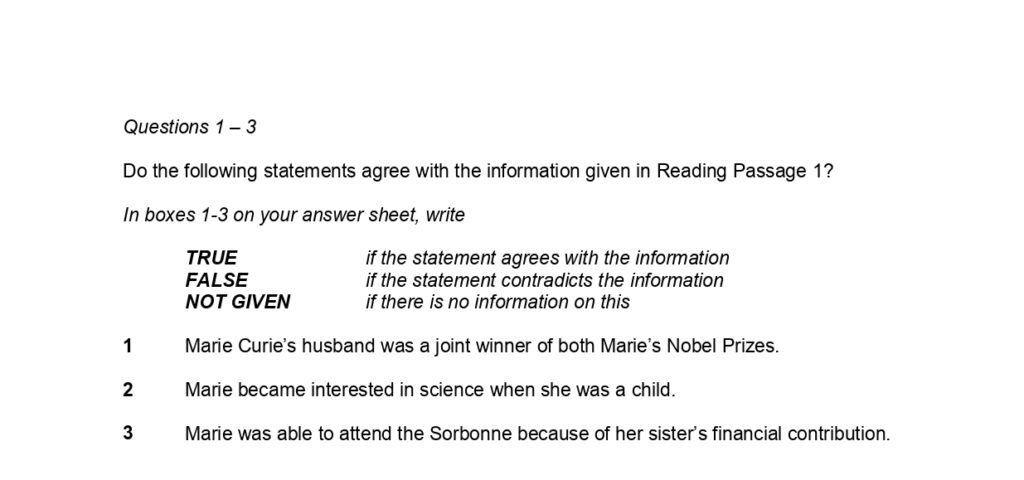
- Table Completion
In this table Question, Students have to complete the table usingthe correct word from the passage.
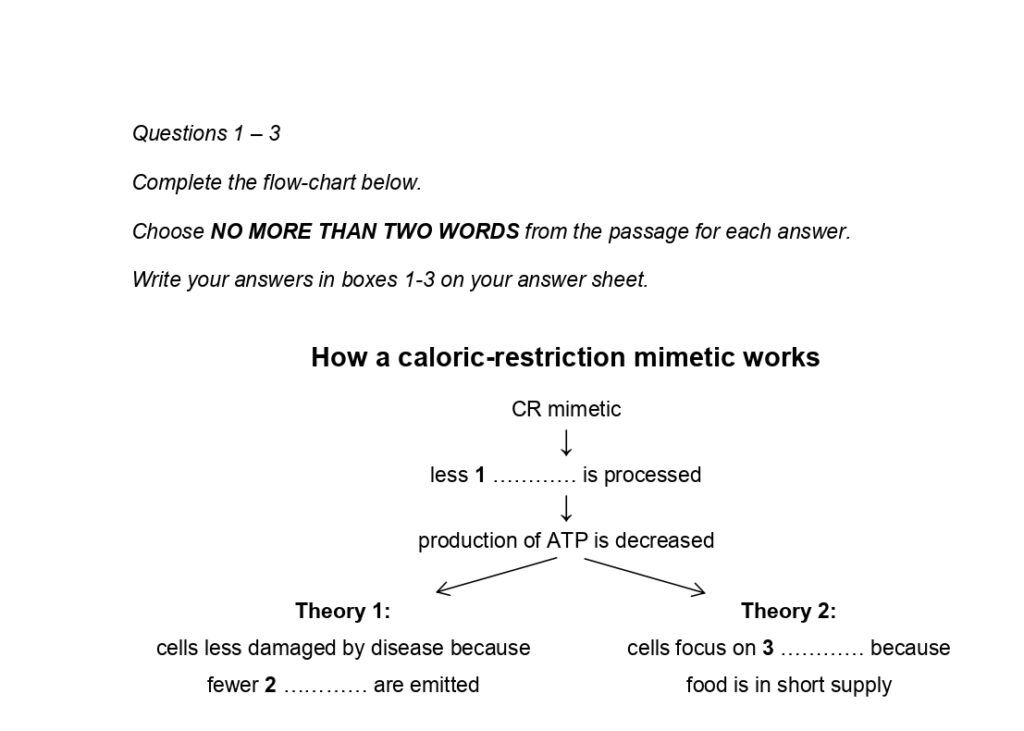
- Flowchart Completion
Students have to complete the flow chart by finding theappropriate words from the passage.
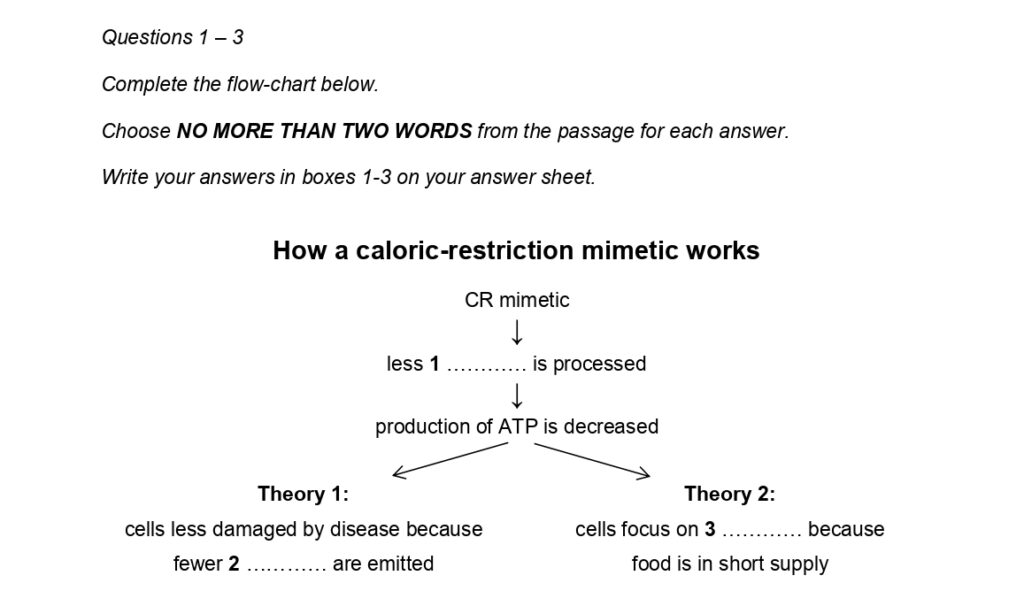
- Diagram Completion
In this question, students have to label a diagram. Answer usually not in order.
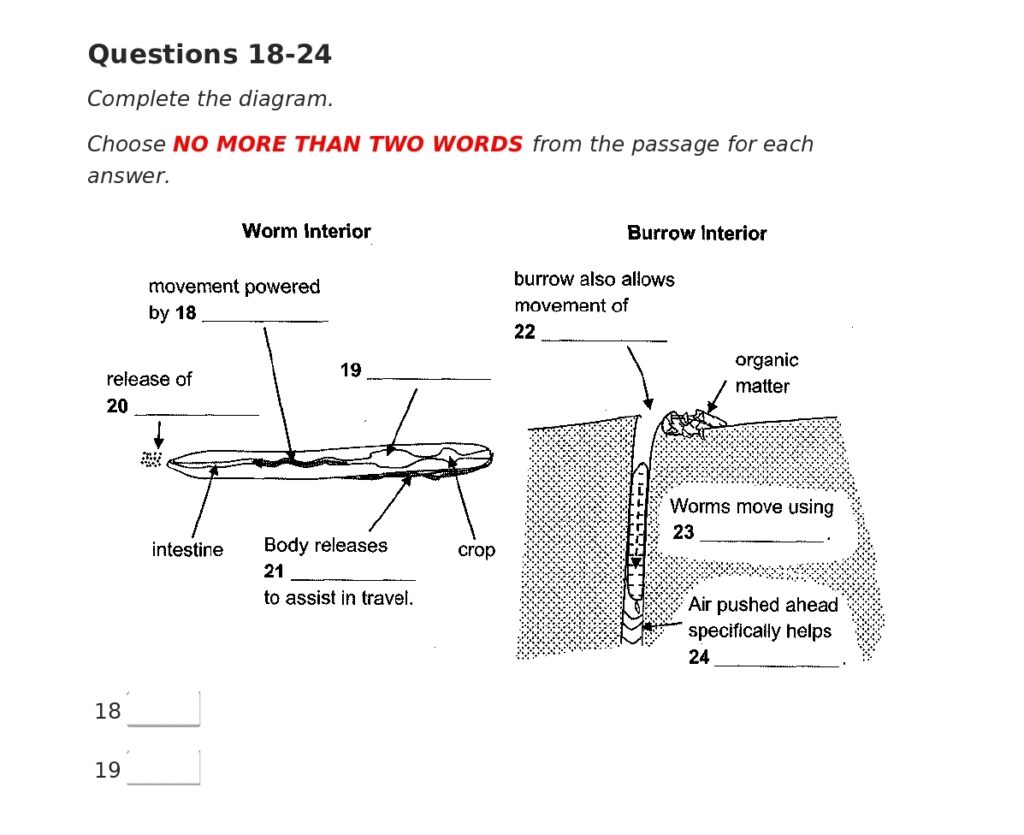
- Multiple Choice Questions
Students have to choose the correct answer to questions 3 or 4 possible options. Answers usually come in order.
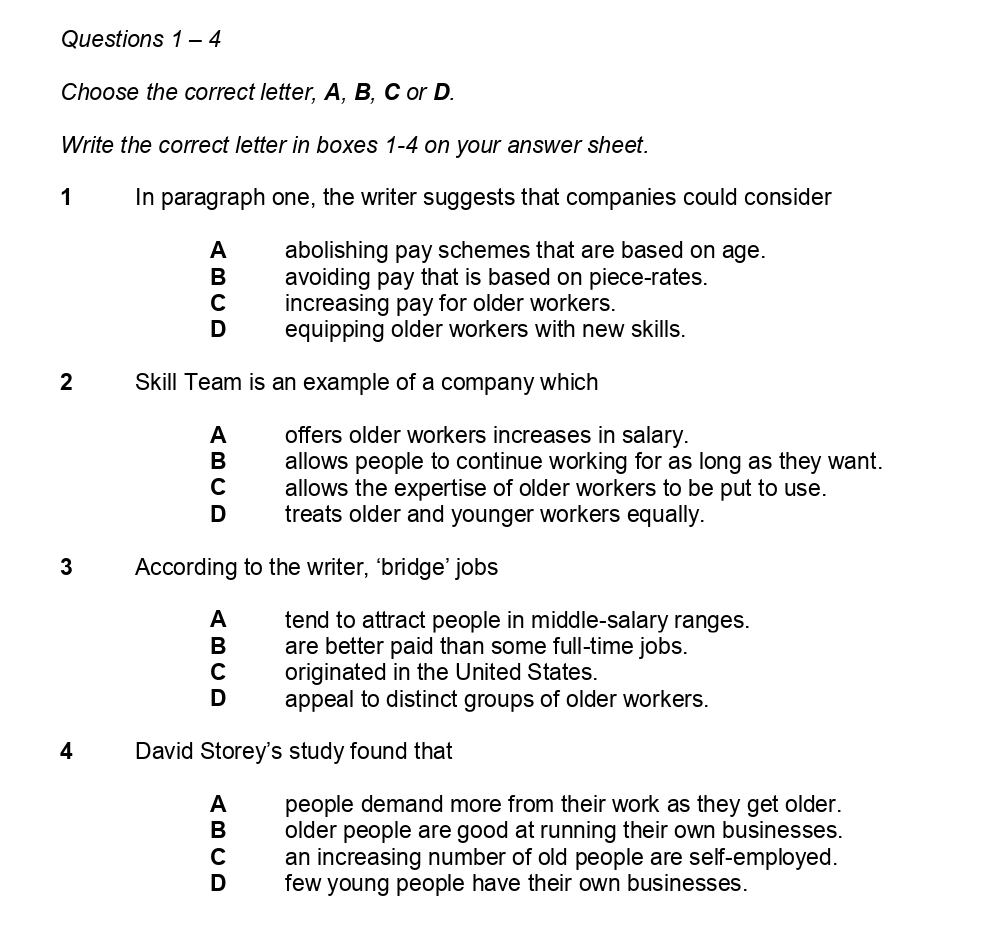
- Summary Completion Question
Students have to complete a summary by filling in the gaps using words from the passage or words given in a box. Students should identify the type of word needed for each gap (noun/verb/adjective etc.). Usually answers in order.
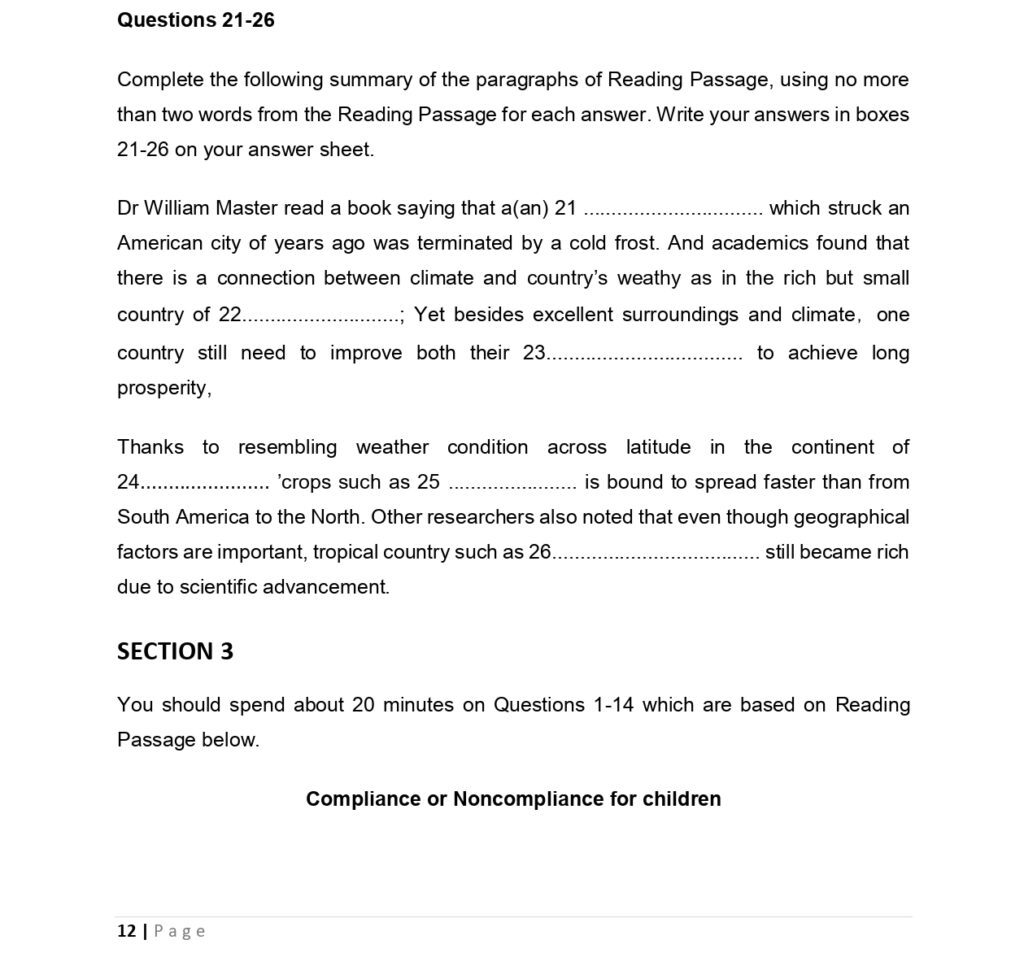
- Sentence Completion Question
In these types of questions you have to complete sentences by filling in the gap with words from the passage. Skills are similar to those needed for the summary completion.
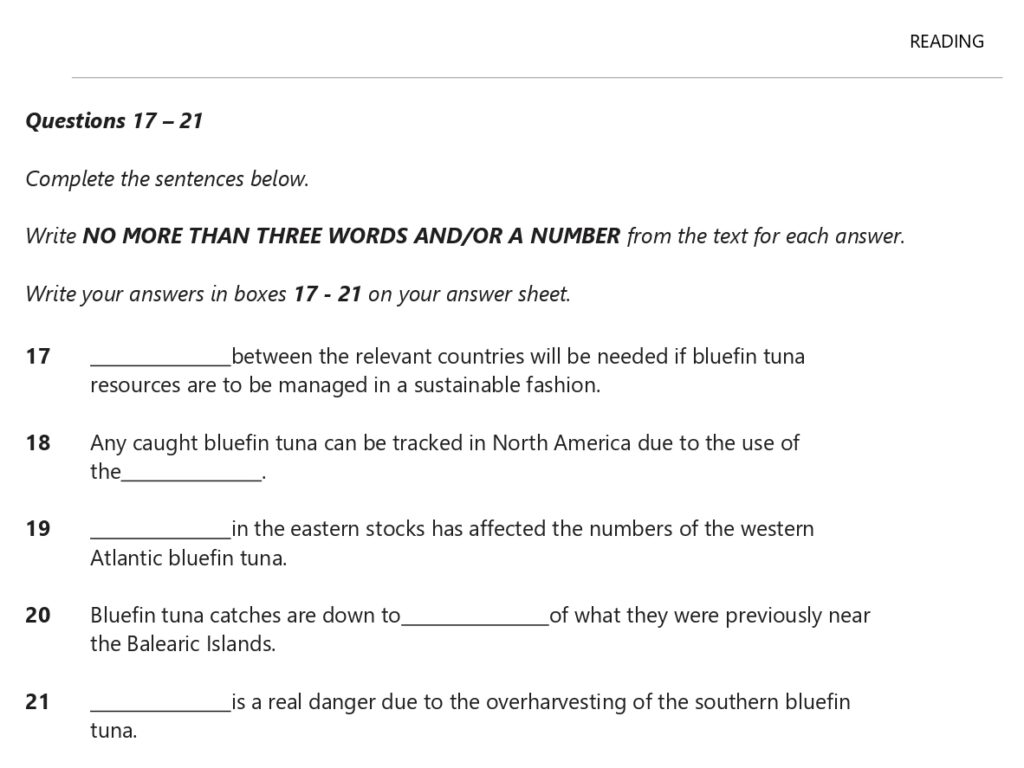
- Matching Sentence Endings
Students have to complete sentences by matching the start of the sentence with the correct ending given in a list.
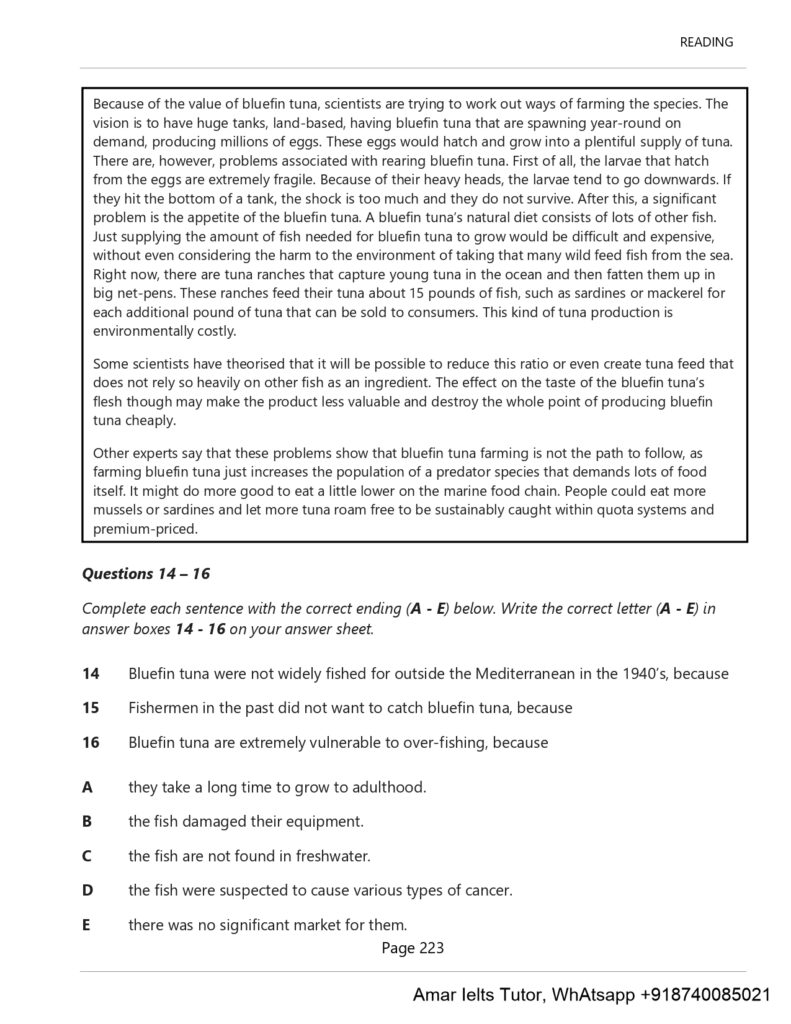
- Choosing a Title
In this question, Students have to answer according to their understanding from the passage.
- Classification Questions
In this question, students have to decide which category the information belongs to from a list.
- Short answer Question
Students have to answer questions regarding details in the passage. Answers usually come in order.
Both Tests Have Different Scoring Patterns
For Academic Reading

For General Reading
